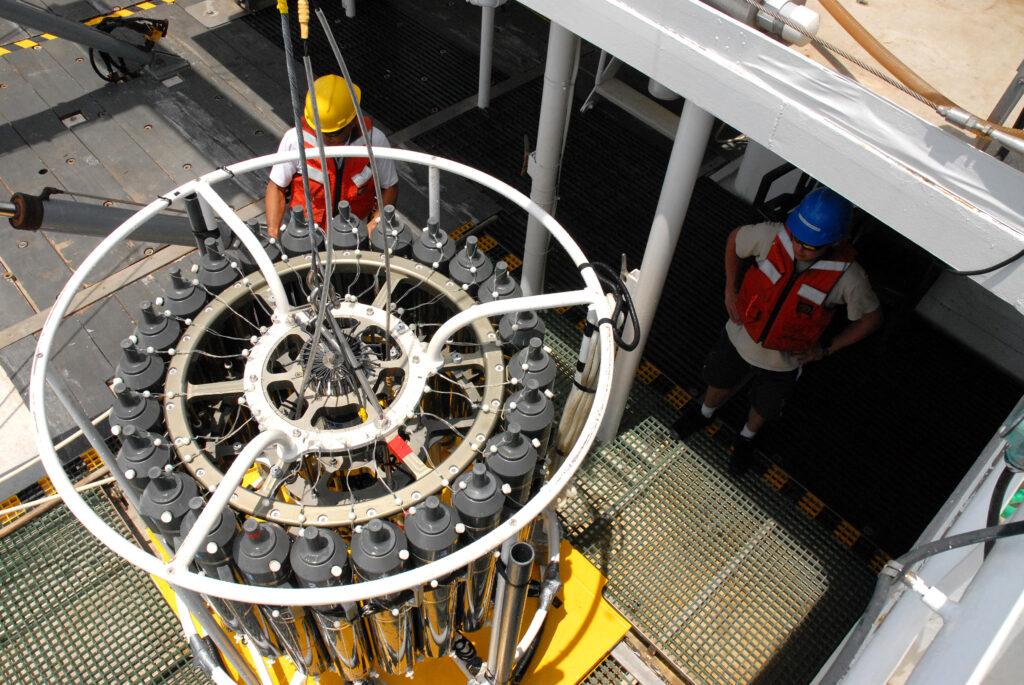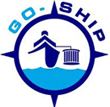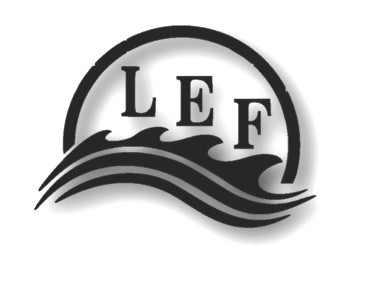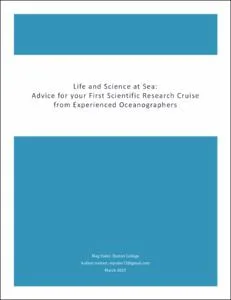Sampling/analysis Standard Operating Procedures (SOPs)

CTD
What is a CTD?

GO-SHIP repeat hydrography manuals
Manuals on most aspects of sampling/analysis for ocean
Organising shipboard training

Floating Teaching Laboratory
When boarding the Floating Teaching Laboratories, undergraduate students from Brazil receive instructions on how to act on board, as well as basic notions of navegation, safety, and health. A class is also given on the importance of data collection in a scientific study aboard a platform such as an Ocean Research Vessel.
Calazans, D. (2022). Floating Teaching Laboratory: Practice as a teaching qualification. Arq. Ciên. Mar, Fortaleza, 2022, 55 (Especial Labomar 60 anos): 492 – 498. http://dx.doi.org/10.32360/78184
Participating in a cruise

This guide contains information about what to expect when going to sea as a scientist, with a particular focus for graduate students on their first sea-going experience. It synthesizes input from over 160 scientists worldwide via survey and in person interview in 2024. This expertise spans a variety of trip lengths and locations, spanning several day coastal trips to monthslong open ocean voyages, as well as cruise participation during all career stages, from undergraduate to chief scientist. Topics covered include advice on scientific preparation, packing, ports of call, seasickness, food, exercise, internet access, shift work, entertainment, interpersonal relationships, safety onboard, living quarters and sleeping, and conducting science onboard. Additional anecdotes, quotes, and general pieces of advice are included as well……
Yoder, Meg (2025) Life and Science at Sea: Advice for your First Scientific Research Cruise from Experienced Oceanographers. Boston, MA, Meg Yoder, 32pp. DOI: https://doi.org/10.25607/OBP-2046



